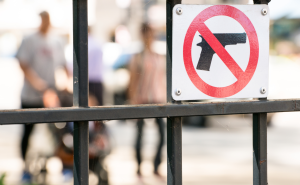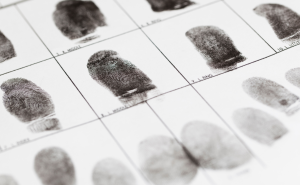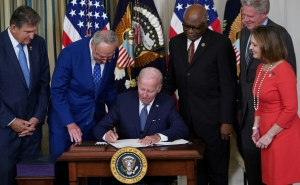New Study Explores How Structural Racism Drives Firearm Violence in Baltimore
Understanding the economic and racial dynamics critical for targeted and effective interventions.

A new study by Johns Hopkins Bloomberg School HPM researchers Mudia Uzzi and Keshia Pollack Porter, PhD reveals that structural racism, specifically through the lens of racial capitalism, significantly contributes to disparities in firearm violence in urban areas like Baltimore City. The research, published in Social Science & Medicine, introduces a novel theoretical framework that links historical and contemporary forms of racial and economic exploitation to the heightened rates of firearm violence in neighborhoods marked by racialized oppression.
The study highlights the need for a more robust engagement with theories of structural racism to understand how racial inequalities manifest in public health crises, such as firearm violence. Building on concepts from various academic fields and Black philosophical perspectives, the researchers developed a framework centered around racial capitalism to explain how structural racism impacts geographic disparities in firearm violence.
The concept of racial capitalism posits that racial exploitation and the accumulation of assets are interdependent, perpetuating economic inequalities and social hierarchies. The framework introduced in this study focuses on two critical processes related to racial capitalism: racialized dispossession and racialized spatial stigma.
- Racialized Dispossession: This process involves the systematic removal of resources and displacement of people from racially marginalized communities. In the context of urban spaces, it includes practices like redlining and subprime mortgage lending, which have historically stripped Black neighborhoods of wealth and stability.
- Racialized Spatial Stigma: This concept refers to the negative connotations attached to specific spaces based on their racial composition, reinforcing racial hierarchies and justifying further neglect and exploitation. The study emphasizes how Black neighborhoods are often unfairly labeled as “dangerous” or “undesirable,” further entrenching economic and social disinvestment.
The researchers conducted an ecological cross-sectional study examining the impact of racial capitalism on firearm violence in Baltimore City. They utilized a structural intersectionality approach to explore how two dimensions of racial capitalism—historical redlining and contemporary racialized subprime mortgage lending—interact to exacerbate firearm violence disparities.
The study focused on Baltimore’s census tracts, analyzing firearm violence data from 2015 to 2019. By examining neighborhoods’ exposure to redlining and subprime mortgage lending, the study identified distinct patterns of firearm violence related to these practices.
“The findings indicate that neighborhoods with sustained disadvantage, characterized by historical redlining and high levels of contemporary subprime lending, experienced the highest rates of firearm violence,” said Uzzi. “In contrast, areas that were not historically redlined and had lower levels of subprime lending witnessed significantly lower rates of firearm violence.”
For example, sustained disadvantaged tracts, which faced both historical redlining and contemporary racialized subprime lending, had firearm violence rates eight times higher than those in sustained advantaged tracts. This stark disparity underscores how deeply entrenched racial capitalist practices impact community safety and well-being.
The study’s authors argue that recognizing racial capitalism as a root cause of firearm violence disparities can significantly influence the development of public health policies and violence prevention strategies.
While the study focused on Baltimore, its findings have broader implications for other U.S. cities grappling with similar issues. The researchers suggest integrating racial capitalism into theoretical frameworks guiding public health research and policy, advocating for a comprehensive approach to addressing structural racism.
Several local organizations, such as Black Women Build Baltimore and the Black Butterfly Project, are actively challenging the impacts of racial capitalism by focusing on community-driven development and advocating for equitable policies.
By incorporating the concept of racial capitalism into their analysis, the authors provide a robust framework for addressing firearm violence disparities and advancing health equity in urban communities.
Related Articles:
- What The Conviction of a Parent of a School Shooter Could Mean
- Questions and Answers on Firearm Purchaser Licensing
- How Armed Insurrection Threatens Public Health





